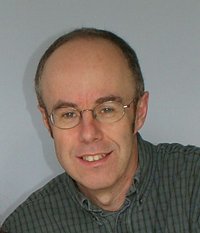Our next willing subject to be put under the HA microscope is Dr. Mike Heyworth, M.B.E., Director of the Council for British Archaeology.
Brief Bio:
Having worked for the CBA in a variety of positions since 1990, Mike is now the organisation’s Director with overall responsibility for delivering the strategic objectives set by the trustees, and for the management of the secretariat. In this role he is involved in many committees and fora and is currently a trustee of Heritage Link, the chair of both the Archaeology Training Forum and the British Archaeological Awards, and secretary to the All Party Parliamentary Archaeology Group (on behalf of the Archaeology Forum). He is particularly interested in public archaeology in all its varied forms, and is a keen ‘early adopter’ of new technology.
The 10 Questions:
What sparked your interest in Archaeology/Heritage Protection?
I went digging aged 14 on an Iron Age site in Andover and immediately got hooked. Over the years my interests have broadened and deepened and I feel privileged to have been able to follow a career in such a fascinating area with so many amazing people.
How did you get started?
After my first day’s digging I worked for the local archaeology group most weekends and school holidays, and then went on to study archaeology at university which gave me the foundation for a rewarding career in the discipline.
Who has most influenced your career?
Richard Morris, an earlier CBA Director, who taught me so much, particularly in my first years with the CBA.
Which has been your most exciting project to date?
There are plenty of options to consider, but one of the highlights has to be the CBA’s Defence of Britain project involving volunteers in the study of twentieth century anti-invasion landscapes across the UK. This was a very challenging, but ground-breaking, project and was really pioneering in so many ways. I’m currently really excited by the CBA’s ongoing project to provide workpkace training bursaries to enable archaeologists to develop skills as a community archaeologist. Both projects have been funded by the Heritage Lottery Fund which shows how important lottery funding is to our heritage.
What is your favourite British archaeological site… and why?
Coppergate in York, excavated by a team from the York Archaeological Trust led by Dr Richard Hall, which led on to the Jorvik Viking Centre. I’ve lived in York for nearly 20 years and seen at first-hand the impact of the excavation on the public’s interest in Viking archaeology, largely due to the innovative way in which it was subsequently presented, along with the ongoing scholarly research to interpret the evidence which the excavation uncovered.
What is your biggest archaeological/heritage regret?
That we have not yet managed to secure statutory status for local authority Historic Environment Records, and the services that are need to maintain and develop them, but I hope that this is something that can be resolved in the coming years. The HERs are vital planning tools, but also crucial ‘knowledge banks’ for professional and voluntary enthusiasts, and they need to be protected from public sector funding cutbacks.
If you could change one thing about current heritage protection legislation, what would it be?
See above!
If you were able to address Parliament for 30 seconds on archaeology what would you say?
I would remind them of the public benefits which come from new knowledge and understanding about the historic environment in which we all live and work, and the ongoing public fascination with archaeological discovery which has to remain a crucial precautionary part of the planning process given that we rarely have a full understanding of what will be found when the first spade goes into the ground. There is also an important linked point to be made that the physical evidence of the past should be used to generate knowledge and not financial profits.
If your career hadn’t worked out, what would you be doing now?
I suspect I’d be working in accountancy (like my Dad). Thank goodness for archaeology!
Away from the ‘day job’, how do you relax?
Following the Saints (Southampton FC) is not always relaxing, as other fans will testify, but it is certainly different from the ‘day job’ and a change is as good as a rest, so they say.
Many thanks to Mike for being such a sport!




Leave a comment
Comments feed for this article